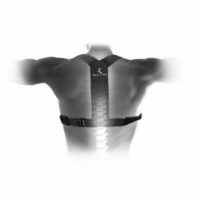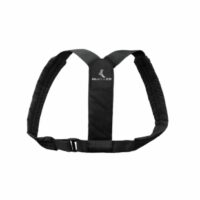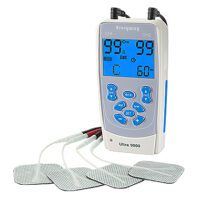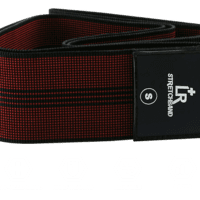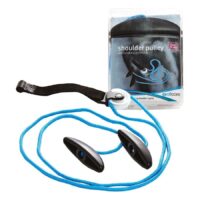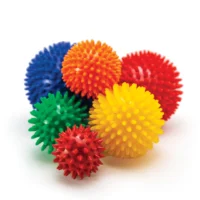Shoulder Pain
Article by John Miller


Shoulder Pain
Navigating Shoulder Injuries
Many individuals experience shoulder pain, often due to the complex nature of the shoulder joint. This guide aims to provide a deeper understanding of shoulder conditions, covering causes, symptoms, and effective management strategies. We’ll explore how this joint’s remarkable mobility can lead to various issues and the crucial role of physiotherapy in treatment.
The Shoulder Joint: A Marvel of Mobility
The shoulder joint boasts remarkable mobility due to its small contact area, making it relatively unstable. This instability highlights the vital role of shoulder muscles in maintaining proper function.
Causes of Shoulder Pain
Shoulder pain can emerge from various sources, including muscle tightness, weakness, or abnormal contraction patterns. This part will detail these causes, explaining how they affect shoulder health and contribute to pain. Recognising these issues is vital for addressing shoulder pain effectively and preventing further complications.
Urgent Medical Attention for Shoulder Injuries
Immediate medical attention is crucial in certain cases of shoulder pain, particularly following severe injuries or when accompanied by symptoms of more serious health concerns. Injuries such as shoulder fractures or a dislocation are prime examples of the need to seek urgent medial attention.
Persistent Shoulder Pain: What It Means
Chronic shoulder pain, often associated with conditions like bursitis or rotator cuff tears, significantly impacts daily activities. In these articles, we’ll discuss the importance of professional intervention in such cases and the potential implications of untreated persistent pain.
Common Shoulder Injuries
The articles linked provide detailed insights into various shoulder injuries. Understanding these conditions is crucial for effective management and recovery.
Rotator Cuff Injuries
Understanding rotator cuff syndrome, its impact on mobility, and pain management.
Related articles:
Shoulder Bursitis
Explore the causes and treatment of shoulder bursitis, a common source of shoulder pain and shoulder impingement.
Related articles:
Shoulder Dislocations and Instability
Insights into the causes, symptoms, and treatments for shoulder dislocations and instability.
Related articles:
Frozen Shoulder
An overview of adhesive capsulitis, including symptoms, progression, and treatment options.
Related article:
Shoulder Fractures
Discussing the types of shoulder fractures, their implications, and recovery processes.
Related article:
Shoulder Arthritis
Examining arthritis in the shoulder, its impact on mobility and pain, and how it’s managed.
Related article:
Consulting a Shoulder Physiotherapist
A physiotherapist can accurately assess shoulder conditions, develop personalised treatment plans, and guide patients through rehabilitation exercises. Their professional knowledge is invaluable in alleviating pain, improving shoulder function, and promoting recovery.


Recent Research
Recent advancements in medical research have significantly bolstered the role of physiotherapy in treating shoulder pain. Studies have shown that physiotherapy, with its array of non-invasive techniques, is effective in managing various shoulder conditions.
One key area of research highlights the success of tailored exercise programs in rehabilitating shoulder injuries. For instance, a study published in the Journal of Physical Therapy Science demonstrated that specific strengthening and flexibility exercises significantly improve pain levels and functional outcomes in patients with subacromial shoulder pain. These exercises focus on enhancing the strength and flexibility of the shoulder muscles, promoting stability and reducing pain. (Pieters et al 2020)
Systematic reviews advocate for a holistic approach in physiotherapy, combining exercise, manual therapy, and patient education. This approach not only addresses immediate pain relief but also focuses on long-term recovery and prevention of future injuries, showcasing the comprehensive benefits of physiotherapy in managing shoulder pain.
Conclusion: Taking Control of Your Shoulder Health
In conclusion, understanding the causes of shoulder pain and seeking professional advice are essential for effective management. It is important being proactive in addressing shoulder issues Physiotherapy plays a pivotal role in the successful treatment and recovery of shoulder pain.
More info
Article by John Miller
What are the Common Causes of Shoulder Pain?
Understanding the Causes of Shoulder Pain: A Guide for the General Public
Shoulder pain is a common issue that can stem from various injuries and conditions. Identifying the cause of your shoulder pain is essential for effective treatment and recovery. This article explains the most common causes of shoulder pain and offers practical advice on what to do next.


Rotator Cuff
The rotator cuff is a group of muscles and tendons that stabilise the shoulder. Injuries here are a frequent cause of shoulder pain. Common conditions include:
- Rotator Cuff Injury: A common condition causing shoulder pain, often due to repetitive overhead activities.
- Rotator Cuff Tendinopathy: Inflammation or damage to the rotator cuff tendons, leading to pain and reduced mobility.
- Rotator Cuff Calcific Tendinopathy: Characterised by calcium deposits in the rotator cuff tendons, causing intense pain.
- Rotator Cuff Tear: Involves a tear in the rotator cuff muscles, often resulting from injury or wear over time.
- Bicep Tendinopathy: Affects the bicep tendon, leading to pain in the front of the shoulder.
Shoulder Impingement Syndrome
Shoulder impingement occurs when shoulder tendons are pinched during arm movements, causing pain and limited mobility. Conditions related to impingement include:
- Shoulder Impingement: A condition where shoulder tendons are pinched during arm movements, causing pain and limited mobility.
- Shoulder Bursitis: Inflammation of the bursa, a small fluid-filled sac in the shoulder, causing pain and discomfort.
- Swimmer’s Shoulder: An overuse injury common in swimmers, causing shoulder pain and impingement symptoms.
Shoulder Stiffness
Stiffness in the shoulder can develop gradually and lead to significant discomfort. Key conditions include:
- Adhesive Capsulitis / Frozen Shoulder: A condition where the shoulder becomes stiff and painful, often developing gradually without a specific cause.
- Shoulder Arthritis: Degenerative joint disease affecting the shoulder, causing pain and stiffness.
Shoulder Instability
Instability in the shoulder can lead to recurrent issues. Common causes are:
- Shoulder Dislocation: Occurs when the shoulder joint is forced out of position, causing pain and instability.
- Functional Shoulder Instability: Chronic instability in the shoulder, often leading to recurrent subluxations, dislocations and pain.
Acromioclavicular Joint
The acromioclavicular (AC) joint can be damaged, often in athletes or after falls. Conditions include:
- AC Joint Injury: Involves damage to the acromioclavicular joint, common in athletes and after falls.
Bone Conditions
Bone-related issues can also cause shoulder pain. These include:
- Broken Shoulder / Fractured Humerus: A break in the shoulder bone, often resulting from trauma or falls.
- Stress Fracture: A small crack in the bone, typically caused by overuse and repetitive activities.
Post-Operative Physiotherapy
Recovery from shoulder surgery often requires tailored exercises and therapies. Important procedures include:
- Subacromial Decompression: A surgical procedure to alleviate shoulder impingement symptoms.
- Shoulder Arthroscopy: Minimally invasive surgery for various shoulder conditions.
- Acromioplasty: Surgery to reshape the acromion and relieve impingement.
- Rotator Cuff Repair: Surgical repair of a torn rotator cuff.
- SLAP Repair: Surgery to fix a specific type of labrum tear in the shoulder.
- Biceps Tenodesis: Surgical procedure to reattach the biceps tendon.
- Biceps Tenotomy: Involves cutting the biceps tendon to relieve pain.
- Total Shoulder Replacement: Replacement of the shoulder joint with artificial components.
Post-Operative Shoulder Rehabilitation: Essential for recovery, involving tailored exercises and therapies to regain strength and mobility after shoulder surgery.
Muscle Conditions
Muscle-related issues causing shoulder pain include:
- Muscle Strain: A tear or stretch in a muscle, often causing pain and limited movement.
- DOMS – Delayed Onset Muscle Soreness: Muscle pain and stiffness that occurs hours after unfamiliar or strenuous exercise.
Neck Arm Syndromes
Pain in the shoulder can originate from other areas, such as the neck. Conditions include:
- Neck Arm Pain: Pain that originates in the neck and travels down to the arm and shoulder.
- Cervical Radiculopathy: Occurs when a nerve in the neck is compressed or irritated, leading to shoulder pain.
- Thoracic Outlet Syndrome: A condition where nerves or blood vessels between the collarbone and first rib are compressed, causing pain in the shoulder area.
Systemic Conditions
Chronic conditions can also affect the shoulders. These include:
- Fibromyalgia: A chronic condition characterised by widespread musculoskeletal pain, including in the shoulder.
- Rheumatoid Arthritis: An autoimmune disorder that can cause joint pain and damage throughout the body, including the shoulders.
What to Do Next?
If you are experiencing shoulder pain, it is essential to seek professional advice from a physiotherapist. They can assess your condition and develop a personalised treatment plan to address your specific needs.
Conclusion
Shoulder pain can significantly impact your daily life, but understanding its causes is the first step towards effective treatment. By recognising the signs and symptoms of different conditions, you can take the appropriate actions to manage your pain and improve your quality of life.
Shoulder Products & FAQs
Explore our range of shoulder products and find answers to frequently asked questions about shoulder pain and treatment options.
Causes of Shoulder Pain FAQs
1. What are the common causes of shoulder pain?
Common causes include rotator cuff injuries, shoulder impingement, adhesive capsulitis, shoulder instability, AC joint injuries, arthritis, fractures, and muscle strains.
2. How can a physiotherapist help with shoulder pain?
A physiotherapist can assess your condition, provide tailored exercises, and offer treatments to reduce pain and improve mobility.
3. What is rotator cuff tendinopathy?
Rotator cuff tendinopathy is inflammation or damage to the rotator cuff tendons, leading to pain and reduced mobility.
4. How is shoulder impingement treated?
Treatment often includes physical therapy, anti-inflammatory medications, and in some cases, surgery to relieve pressure on the tendons.
5. What should I do if I have a frozen shoulder?
Consult a physiotherapist for a tailored exercise program to improve mobility and reduce pain.
6. Can shoulder pain be related to neck problems?
Yes, conditions like cervical radiculopathy can cause shoulder pain due to nerve compression in the neck.
Related Articles
- Rotator Cuff Injuries: Discover causes and treatments for rotator cuff injuries.
- Shoulder Impingement: Learn how to manage and treat shoulder impingement.
- Frozen Shoulder: Understand the symptoms and treatments for adhesive capsulitis.
- Shoulder Dislocation: Find out how to manage shoulder dislocations.
- AC Joint Injury: Explore treatment options for AC joint injuries.
- Shoulder Arthritis: Learn about managing pain and stiffness from arthritis.
- Post-Operative Shoulder Rehabilitation: Understand the recovery process after shoulder surgery.
- Muscle Strain Treatments: Discover effective ways to treat muscle strains.
- Cervical Radiculopathy: Learn how neck issues can cause shoulder pain.
- Thoracic Outlet Syndrome: Find out about symptoms and treatments for this condition.
Shoulder Pain FAQs
Your Comprehensive Guide to Understanding and Managing Shoulder Injuries
Welcome to the "Shoulder Pain FAQs" page, your go-to resource for understanding various aspects of shoulder pain, injuries, and how to manage them effectively. The shoulder is a complex joint that allows for a wide range of movements, but it is also susceptible to various injuries and conditions that can cause discomfort and limitations in daily activities.
In this comprehensive guide, we will explore the most common shoulder injuries, their causes, and how to identify and treat them. We'll also address frequently asked questions about specific shoulder conditions, providing you with valuable insights into your shoulder health.


When Should You Worry About Shoulder Pain?
Shoulder pain can be caused by numerous factors, ranging from minor strains to more severe injuries. Knowing when to seek medical attention is crucial to prevent further damage and facilitate timely recovery.
Common Shoulder Injuries
We'll swing into the most prevalent shoulder injuries, shedding light on their causes, symptoms, and appropriate treatment options.
More info: Common Shoulder Injuries
What Causes Shoulder Pain?
Understanding the root causes of shoulder pain is fundamental to addressing the issue effectively. We'll explore the various factors that can lead to shoulder discomfort and how to mitigate them.
More info: What Causes Shoulder Pain?
What is Your Scapulohumeral Rhythm?
The scapulohumeral rhythm plays a vital role in shoulder function and movement. We'll explain what it is and its significance in maintaining a healthy shoulder.
More info: What is Your Scapulohumeral Rhythm?
Rotator Cuff: An In-Depth Analysis
The rotator cuff is a critical group of muscles and tendons in the shoulder. We'll dive into its anatomy, functions, and common problems associated with it.
More info: Rotator Cuff: An In-Depth Analysis
How Can You Tell If You Have Torn Your Rotator Cuff?
Identifying a torn rotator cuff can be challenging, but we'll provide you with essential signs to look out for and when to seek professional evaluation.
More info: How Can You Tell If You Have Torn Your Rotator Cuff?
Can You Diagnose A Torn Rotator Cuff Without An MRI?
Find out about diagnostic methods for a torn rotator cuff, including whether an MRI is always necessary for accurate diagnosis.
More info: Can You Diagnose A Torn Rotator Cuff Without An MRI?
Can You Lift Your Arm With A Rotator Cuff Tear?
Discover the limitations and challenges you may face if you have a torn rotator cuff and how to manage arm movement during the healing process.
More info: Can You Lift Your Arm With A Rotator Cuff Tear?
Will Your Shoulder Blade Hurt With A Torn Rotator Cuff?
Learn about the possible relationship between a torn rotator cuff and shoulder blade pain, and what it indicates about your shoulder health.
More info: Will Your Shoulder Blade Hurt With A Torn Rotator Cuff?
Will A Cortisone Injection Help A Torn Rotator Cuff?
Cortisone injections are sometimes used for shoulder pain, but their effectiveness in treating a torn rotator cuff is a point of interest we'll explore.
More info: Will A Cortisone Injection Help A Torn Rotator Cuff?
How Can You Make Your Rotator Cuff Heal Faster?
We'll provide practical tips and strategies to aid in the healing process of a torn rotator cuff and restore shoulder function more rapidly.
More info: How Can You Make Your Rotator Cuff Heal Faster?
Shoulder Bursitis: Understanding the Condition
What is shoulder bursitis, and how does it differ from other shoulder injuries? Get insights into this inflammatory condition and how to manage it.
More info: Shoulder Bursitis: Understanding the Condition
Shoulder Impingement: Causes and Solutions
Understand the concept of the shoulder impingement zone and the factors contributing to rotator cuff impingement and bursitis.
More info: Shoulder Impingement: Causes and Solutions
Frozen Shoulder: Overcoming the Stiffness
Discover how to unfreeze a frozen shoulder and regain a full range of motion through effective therapeutic approaches.
More info: Frozen Shoulder: Overcoming the Stiffness
Shoulder Dislocation/Instability: Seeking Stability
Explore the causes of shoulder dislocation and instability, and the fastest ways to promote healing and prevent future occurrences.
More info: Shoulder Dislocation/Instability: Seeking Stability
Can You Fix Shoulder Instability?
Find out about treatment options to address shoulder instability and regain stability in the joint.
More info: Can You Fix Shoulder Instability?
AC Joint: Identifying and Managing Injuries
Learn how to recognise an injured AC joint and what steps to take for proper care and recovery.
More info: AC Joint: Identifying and Managing Injuries
Swimmers Shoulder: Causes and Remedies
If you're a swimmer or engage in repetitive overhead activities, understanding the causes of swimmer's shoulder and how to prevent it is essential.
More info: Swimmers Shoulder: Causes and Remedies
We hope this comprehensive guide will prove invaluable in your journey to understand and manage shoulder pain and injuries. However, it's essential to consult a healthcare professional for personalised advice and treatment based on your specific condition. Let's dive into the world of shoulder health together!
















































